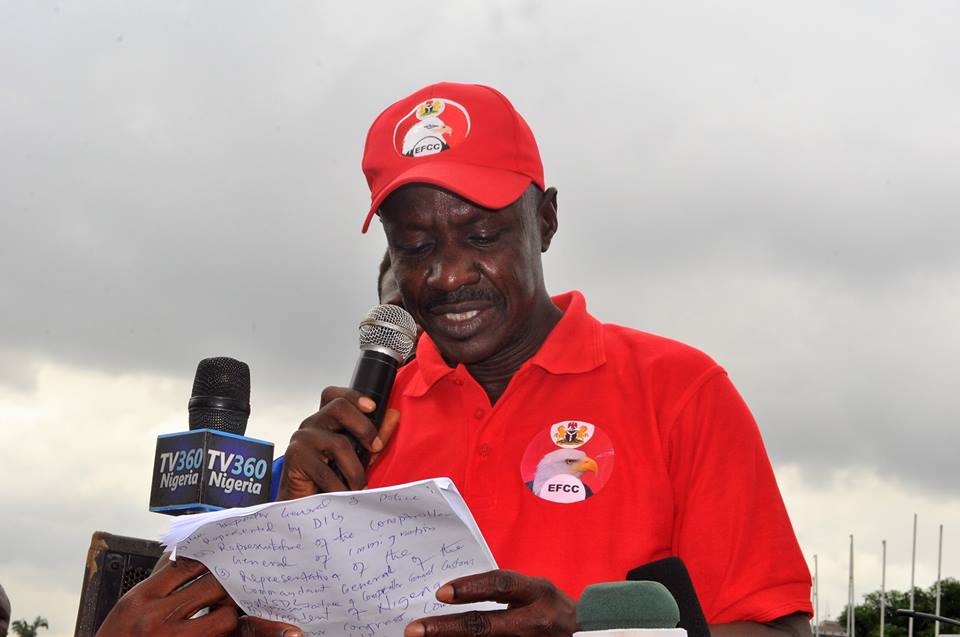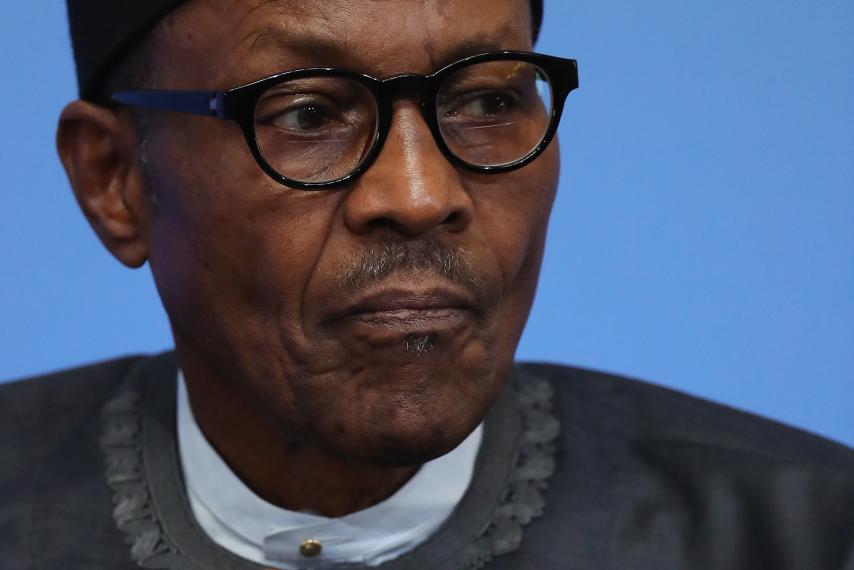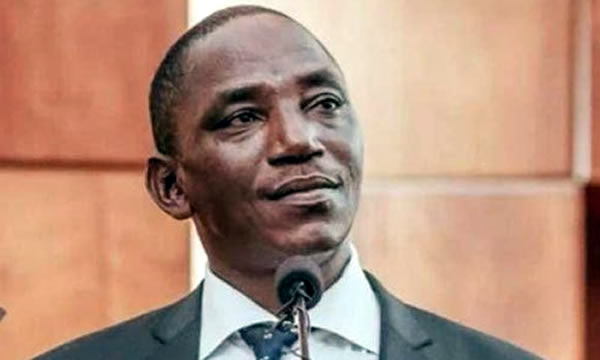BY SALIHU OTHMAN ISAH
The presidential adhoc committee to reposition the Nigerian Financial Intelligence Unit (NFIU) constituted by then Acting President, Professor Yemi Osinbajo with a view to restore Nigeria’s membership on the Egmont group of Financial Intelligence Unit has began work.
Osinbajo set up the committee following the recent sanction of Nigeria by the global body, for flouting its rules and regulations.
The adhoc committee headed by Senator Chukwuka Utazi, the chairman, senate committee on anti-corruption and financial crimes, is also to prepare for the Financial Action Task Force (FATF) visit to Nigeria in November, this year. It had its inaugural sitting at the senate meeting Room 117 on August 14th, 2017.
Advertisement
Other members of the committee include Honourable Kayode Oladele, chairman, house committee on financial crime, Dr Abdullahi Y Shehu, Mrs Juliet Ibekaku-Nwagwu, special adviser to the president on justice reform representing the attorney general of the federation and minister of justice, representatives of the federal ministries of finance, interior, the secretary, Presidential Advisory Committee against Corruption (PACAC), Independent Corrupt Practices and other related Offences Commission (ICPC) as well as the Economic and Financial Crimes Commission (EFCC).
The terms of reference of the committee are as follows: to recommend and facilitate legal and regulatory measures to ensure the financial and operational autonomy of the NFIU; to recommend other necessary steps to be taken by relevant stakeholders to ensure the restoration of NFIU’s membership on the Egmont Group; to advise on the implications, including financial or otherwise, of the proposed membership of the Financial Action Task Force (FATF); to advise on steps to be taken in preparation for the proposed mutual self-evaluation visit of the FATF in November 2017 as well as to make any other recommendations as may be necessary to advance Nigeria’s capacity to use financial intelligence to fight crime.
They are expected to conclude the assignment and submit final report to the Presidency at the end of this August.
Advertisement
It would be recalled that at its 24th plenary of the group held in Macao, a Chinese special administrative region (SAR) from July 2-7, 2017, chaired by Mr Sergio Espinosa, chair of the Egmont Group, Nigeria was suspended for flouting its laid down rules and regulations.
The group at the meeting where about 354 participants representing 112 financial intelligence units were in attendance particularly reprimanded Nigeria, for lack of the independence of the Nigeria Financial Intelligence Unit (NFIU) from the Economic and Financial Crimes Commission (EFCC). Besides, its decision by consensus to clampdown on Nigeria arose from repeated failures on the part of the NFIU to address concerns regarding the protection of confidential information, specifically related to the status of suspicious transaction report (STR) details and information derived from international exchanges.
However, the group expressed its hope that the Nigerian authorities will address these concerns to enable it lift the suspension as soon as possible. To this end, it has given a deadline of December 2017 to comply with its standards on financial intelligence or risk expulsion.
Senator Chukwuka Utazi in his remark during the inaugural meeting of the adhoc committee insisted that, “The constitution of this committee is well-considered given the specialised nature of its assignment. I am, therefore, optimistic that this Committee will address the issues within its mandate with expertise and capacity.
Advertisement
The suspension of Nigeria from the Egmont group of national financial intelligence units at its July 2017 meeting in China with a threat of an expulsion in January 2018 if Nigeria did not meet the standards of the group with regards to its operations has dire consequences for Nigeria on many fronts. As the group is the highest inter-governmental association of intelligence agencies in the world, the suspension does not bode well for the country.”
The chairman added that, “the suspension immediately activates the shutdown of the Egmont secure web, ESW, against Nigeria with the implication that Nigeria can no longer exchange sensitive information with other member countries in order to carry out our investigative and regulatory responsibilities as the consequences on sharing criminal intelligence and financial information bothering on money laundering, terrorism financing, proliferation of arms, corruption, financial crimes, economic crimes and such-like offences geared towards the support of local and international investigations, prosecutions and asset recovery. Nigeria cannot afford this status quo as it greatly impedes our avowed fight against corruption and detracts from the gains we have made in that direction.
“As we all know, many agencies of government, like the DSS, Nigeria Police Force, the Nigeria Customs Service, the ICPC, the EFCC, the Nigeria Immigration Service, NAPTIP, NDLEA, DMI, NIA, federal ministry of justice, finance and interior, the Federal Inland Revenue Service, and other financial regulators such as the Central Bank of Nigeria (CBN), Securities and Exchange Commission, National Insurance Commission (NAICOM) and many others, including the facilitation of the oversight responsibilities of the national assembly depends on the activities of the NFIU and its membership of the group for many of their activities.
“Therefore, this committee has to urgently appraise the legal and regulatory measures that are needed to ensure the financial and operational autonomy of the NFIU and to take further steps to achieve the restoration of its membership of the Egmont Group. We also need to review which laws need to be in place, and which need to be fast-tracked to achieve this purpose. Also, institutional and regulatory adjustments that need to be made shall be carefully considered towards making our recommendations…
Advertisement
This committee, inevitably, also has to finally and squarely resolve the issue of the appropriate agency or body in which to domicile the Unit and I call for open and frank discussions guided by national interest and international best practices as we discuss these issues”, he appealed.
But how did we actually get on this ugly ignoble road leading to the damage control measures we have embarked on as a nation due to the Egmont Group’s suspension pronouncement.
Advertisement
It would be recalled that since 2006 when the NFIU was established, it has been under the control of the EFCC as enshrined in Section 1(2)(C) of the EFCC Act that stipulates that the commission “is the designated financial intelligence unit (FIU) in Nigeria, which is charged with the responsibility of coordinating the various institutions involved in the fight against money laundering and enforcement of all laws dealing with economic and financial crimes in Nigeria. In essence, EFCC is the NFIU. Without a clear legal framework, it is obvious that the NFIU, cannot function independent of the EFCC as required by the Egmont Group.
But this is the year 2017 and so much water has passed under the bridge. It is in line with the new trend and in consonance with international best practice, that the office of the attorney-general of the federation and minister of justice, Abubakar Malami, SAN through a memo numbered HAGF/SH/2016/Vol.1/2 sent to President Muhammadu Buhari dated 5th January, 2016 and titled, ‘Request to Transmit Two (2) bills to the national assembly’ referred Mr President to the bills. He reminded the president that they, “were earlier passed by the 7th national assembly and forwarded for Presidential Assent, viz: Proceed of Crime Bill; and Nigeria Financial Intelligence Centre Bill, 2015.”
Advertisement
The memo continued that, “In view of the fact that the thirty (30) days time limit permitted under Section 58 (5) of the constitution for assent to a bill has expired, I respectfully wish to request Mr President to re-transmit the bills to the 8th assembly for accelerated hearing, as may be permitted by its rules. I have reviewed the two bills which are executive bills and can confirm that they are consistent with the agenda of the present administration.
“The two bills have been prioritised because they will support the fight against corruption, money laundering, terrorism, kidnapping, oil theft and a host of other crimes that are related to financial crimes. They will also enhance the legal measures for the recovery and management of stolen asset and ensure that all assets are recovered from within Nigeria and outside Nigeria in a prompt manner.”
Advertisement
The memo signed by the AGF with the two bills attached, dispatched and acknowledged same day by the presidency had as prayers that, “In the light of the above, Your Excellency is graciously invited to re-transmit the above-mentioned two Bills to the national assembly for consideration and passage, please”, it concluded.
There are several other documents detailing the commitment of the AGF and the federal ministry of justice to ensure that Nigeria is fully ratified as a bona fide member of the Egmont Group and other international anti-graft bodies in line with the Buhari administration’s effort to combat all corruption and other forms of crimes.
However, it is sad tale to tell how the Acting Chairman, Ibrahim Magu-led EFCC has frustrated these efforts and even had to resort to blackmail in some instances oftentimes, alleging that the AGF and the ministry were all out to impede the government’s anti-corruption drive. Magu and other EFCC officials; and atimes through online publications; had at one time or the other accused the Minister of trying to compromise the war. They have always perceived the office of AGF as a threat instead of addressing the issues related to the best strategy to fight corruption advocated by the AGF.
For instance, during the house of representatives committee review session on 18th April, 2017, Magu vehemently rejected the new money laundering (Prevention and Prohibition Bill 2016 submitted by the president; which according to him, as reported by some national dailies; might prejudice President Muhammadu Buhari’s anti-corruption agenda. He even went on his whimsical best by surmising that passing the bill into law now will affect Nigeria’s application for the membership of the Financial Action Task Force (FATF). What parody!
In likewise, the EFCC is now in a state of paranoia, as it dreads the effort of the government to have an independent NFIU which it has stood against stoically since 2006. As it presently stands, the NFIU staff are all deployed by the EFCC to serve in the interest of whoever is its current chairman. This has to stop if it must conform to the new thinking and global best practice. Nigeria cannot be an island of its own. It cannot fight corruption in isolation. The threat of expulsion from the Egmont Group calls for a thorough review of the NFIU and the manner in which the EFCC leadership has manipulated and mis-used intelligence to the detriment of the fight against corruption and financial crime in Nigeria.
To achieve the desired goal, NFIU needs to stand alone as an agency with full complements of power to recruit its staff and an annual budgetary allocation guaranteed for its operations. Its independence must be ascertained in the new law to set up Nigerian Financial Intelligence Agency (NFIA) to enable it carry out its mandate which shall include responsibilities for receiving, requesting, analysing and disseminating financial intelligence reports on money laundering, terrorist financing and other relevant information to law enforcement, security and intelligence agencies, and other relevant authorities.
The bill passed by the senate states as follows:
“There is established a body to be known as the Nigerian Financial Intelligence Agency (in this bill referred to as “the agency”) which shall be the central body in Nigeria responsible for receiving, requesting, analysing and disseminating financial intelligence reports on money laundering, terrorist financing and other relevant information to law enforcement, security and intelligence agencies, and other relevant authorities.
(2) The agency –
(a) is a body corporate with perpetual succession and a common seal and may sue and be sued in its corporate name;
(b) may, for the performance of its functions, acquire, mortgage, hold and deal howsoever with movable and immovable property and may enter into a contract or any other transaction; and
(c) shall be independent in the discharge of its duties and functions under this bill and for that purpose shall not take directives from any person or authority.
(3) For purposes of institutional location and logistical support, the agency shall be domiciled in the Central Bank of Nigeria.
The house of representatives under the able leadership of Mr Yakubu Dogara is therefore urged to take a bold step by taking a cue from the senate by passing the bill as soon as they return from their break. This patriotic move will ensure that Nigeria is not scorned in the international community in view of the possible Egmont Group expulsion staring it on the face.
As a result of the new occurrences in global circle, it is pertinent that the EFCC cannot continue to be dogmatic on its stand. It can’t shy away from the needful. The current reality is that, Nigeria must not remain a pariah in the anti-corruption space. This is very germane at this point.
Salihu Othman Isah is special adviser, media and publicity to Abubakar Malami, attorney-general of the federation and minister of justice.
Add a comment






